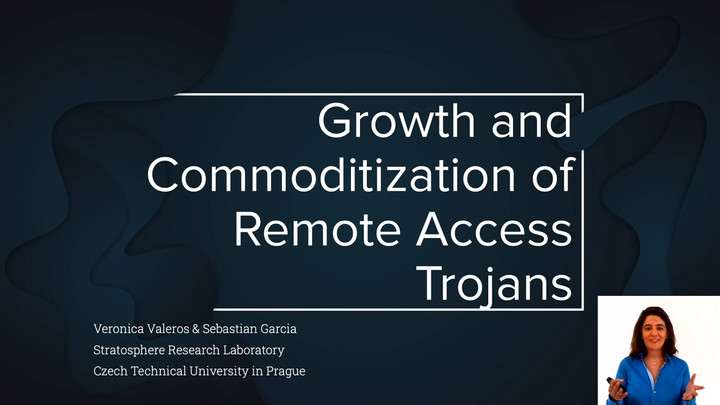Growth and commoditization of remote access trojans
Veronica Valeros (Czech Technical University in Prague) & Sebastian García (Czech Technical University in Prague)
19:00 UTC on
Day 2
THURSDAY 01 OCTOBER
Veronica Valeros
Czech Technical University in Prague
Veronica is a researcher and intelligence analyst from Argentina. Her research has a strong focus on helping people and involves different areas from wireless and Bluetooth privacy issues to malware, botnets and intrusion analysis. She has presented her research at international conferences such as BlackHat, Virus Bulletin, Botconf and others. She is the co-founder of the MatesLab hackerspace based in Argentina, and co-founder of the Independent Fund for Women in Tech. She is currently a senior researcher at the Civilsphere project at the Czech Technical University, dedicated to protect civil organizations and individuals from targeted attacks.

Sebastian García
Czech Technical University in Prague
Sebastian is a malware researcher and security teacher who has extensive experience in machine learning applied on network traffic. He created the Stratosphere IPS project, a machine learning-based, free software IPS to protect the civil society. He likes to analyse network patterns and attacks with machine learning. As a researcher in the AIC group of Czech Technical University in Prague, he believes that free software and machine learning tools can help better protect users from abuse of their digital rights. He has been teaching in several countries and universities and working on penetration testing for both corporations and governments. He has been lucky enough to talk in Ekoparty, DeepSec, Hacktivity, Botconf, Hacklu, InBot, SecuritySessions, ECAI, CitizenLab, ArgenCor, Free Software Foundation Europe, Virus Bulletin, BSides Vienna, HITB Singapore, CACIC, etc. As a co-founder of the MatesLab hackspace he is a free software advocate who has worked on honeypots, malware detection, distributed scanning (dnmap) keystroke dynamics, Bluetooth analysis, privacy protection, intruder detection, robotics, microphone detection with SDR (Salamandra) and biohacking.






 CTA TIPS
CTA TIPS 